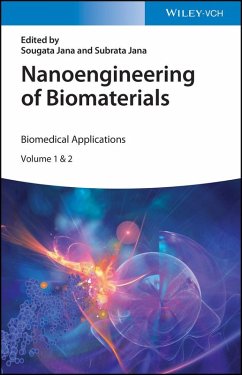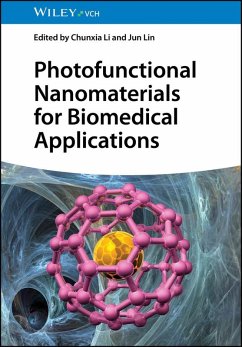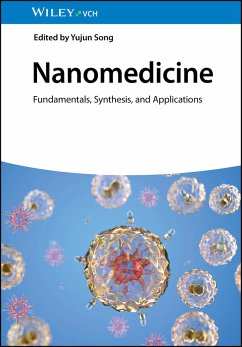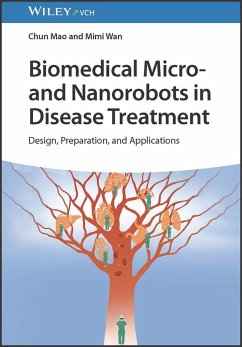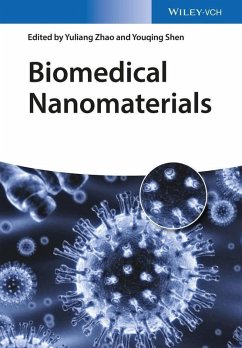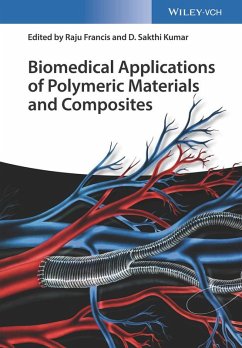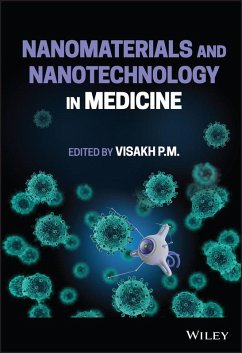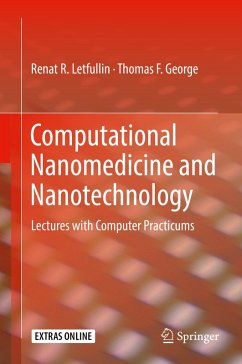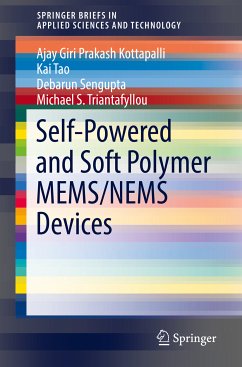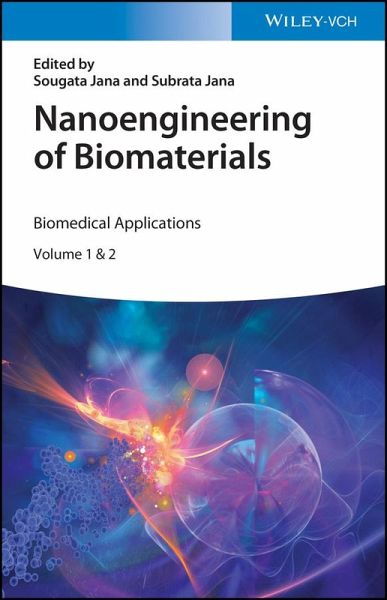
Nanoengineering of Biomaterials (eBook, PDF)
Drug Delivery & Biomedical Applications
Redaktion: Jana, Sougata; Jana, Subrata
Versandkostenfrei!
Sofort per Download lieferbar
Statt: 369,00 €**
354,99 €
inkl. MwSt. und vom Verlag festgesetzt.
**Preis der gedruckten Ausgabe (Gebundenes Buch)
Alle Infos zum eBook verschenkenWeitere Ausgaben:

PAYBACK Punkte
0 °P sammeln!
In Nanoengineering of Biomaterials: Drug Delivery & Biomedical Applications untersucht ein Expertenteam von Chemikern in prägnanter Form die Synthese, Charakterisierung und Freisetzung von Wirkstoffmolekülen in vitro und in vivo, die pharmakokinetische Aktivität, pharmakodynamische Aktivität und die biomedizinischen Anwendungen verschiedener Arten von nanotechnologisch hergestellten Biomaterialien. Zudem werden die neuesten Entwicklungen in diesem Bereich anhand von aktuellen Materialien präsentiert. Dieses Werk ist eine Sammlung von wertvollen und leicht zugänglichen Referenzquellen fü...
In Nanoengineering of Biomaterials: Drug Delivery & Biomedical Applications untersucht ein Expertenteam von Chemikern in prägnanter Form die Synthese, Charakterisierung und Freisetzung von Wirkstoffmolekülen in vitro und in vivo, die pharmakokinetische Aktivität, pharmakodynamische Aktivität und die biomedizinischen Anwendungen verschiedener Arten von nanotechnologisch hergestellten Biomaterialien. Zudem werden die neuesten Entwicklungen in diesem Bereich anhand von aktuellen Materialien präsentiert. Dieses Werk ist eine Sammlung von wertvollen und leicht zugänglichen Referenzquellen für Forscher in der Materialchemie und verwandten Forschungsgebieten. Unter Verwendung eines funktionsorientierten Ansatzes werden organische und anorganische Ausgangsverbindungen zur Herstellung biologischer Systeme genutzt, die als Gerüste, Mizellen, Dendrimere und andere Verabreichungssysteme dienen. Nanoengineering of Biomaterials vermittelt aktuelle Erkenntnisse aus der Chemie und der Materialwissenschaft, die sich leicht auf biomedizinische Systeme übertragen lassen. Darüber hinaus bietet das Werk: * Eine gründliche Einführung in die Verabreichung von Therapeutika durch Alginat-Nanopartikel und Nanomaterialien auf Chitosan-Basis in biologischen Anwendungen * Eine umfassende Betrachtung von nanostrukturiertem Carrageen als Wirkstoffträger, Gellangummi-Nanopartikeln bei der Wirkstoffverabreichung und Guargummi-Nanopartikeln bei der Verabreichung bioaktiver Moleküle * Eine praktische Erörterung von proteinbasierten Nanopartikeln bei der Wirkstoffverabreichung, festen Lipid-Nanopartikeln als Wirkstoffträger und auf den pH-Wert reagierenden Nanopartikeln in der Therapie * Eine grundlegende Untersuchung von auf bestimmte Stimuli reagierenden Nanoträgern bei der gezielten Wirkstoffverabreichung Nanoengineering of Biomaterials: Drug Delivery and Biomedical Applications ist nicht nur perfekt für Fachleute in der pharmazeutischen Chemie, Materialwissenschaft, Polymerchemie, den Biowissenschaften und der Medizinalchemie geeignet, sondern ist auch eine unverzichtbare Quelle für Biologen und Bioingenieure auf der Suche nach einem umfassenden Nachschlagewerk, das sich mit der Übertragbarkeit der Materialchemie und Nanotechnologie auf die Biomedizin beschäftigt.
Dieser Download kann aus rechtlichen Gründen nur mit Rechnungsadresse in D ausgeliefert werden.




